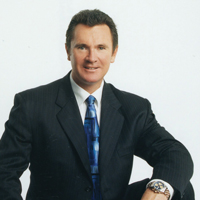In the recession of the early 1990s, Australian entrepreneur Wayne Sharpe helped set up Bartercard and created the world's largest trading exchange. Now, in the midst of another economic downturn, he's reverted to a hands-on role
What made you set up Bartercard back in 1991?
I owned a financial services company which offered a full range of finance, insurance, investment and business consulting services and was asked to provide a full business plan and model for the concept of Bartercard. But when they came to pay me they had no money. I did my first barter for equity against 300 hours of consulting I had done.
What kinds of products and services can be traded on Bartercard? What is the most bizarre transaction that has taken place to your knowledge?
Our directory of members covers the full cross-section of business, including accountants, lawyers, plumbers, dentists, restaurants, hotels, printers, couriers, retailers, manufacturers, web designers, IT support, media companies, advertising agencies, property developers, hairdressers and even zoos. Our most unique transaction was a small chain of four hotels in Barbados which had full-colour brochures printed in Sri Lanka and paid for it by selling rooms to Bartercard members in the UK.
How have you found the market over the past year or so?
The past year has seen a vast gap appear between businesses which will fail or succeed. Many have put their head in the sand and are not being proactive. I call it the tortoise syndrome: pull your head in and wait for the storm to pass. But this won't pass; not quickly anyway. So they need to engage into the marketplace and be positive to counteract the economy.
What are the benefits of Bartercard for small businesses in the current climate?
New sales, offset cash expenses and survival are the top ones, but the peer group business networking is also a critical element. Creative marketing via our Bartercard network can and will be the difference for many on how hard they are or are not hit.
The business now operates in 12 countries with more than 120 offices. How challenging was it to build up an international business from scratch?
The challenges have been immense. I often wonder whether I would have done it if I knew what I was in for. We have been operational in up to 20 countries, but some of the operations that failed as licensees were ultimately due to incredibly poor ethics in the owner/operators. But for every dishonest businessperson in the world there are hundreds who are the real deal. We had to overcome language, culture, legal and many other hurdles to expand globally.
When did you introduce the franchise model and how has that helped the business to grow?
Right from the beginning. We always owned multiple offices, but domestic franchising and international master franchising has been crucial to our growth. The main thing is to always make sure the franchisee is profitable first, and then take your cut. That way it's sustainable.
Do you still play an active role in the day-to-day running of the business?
Yes, today more than ever. As the global economy went downhill, some of our operations flourished and some failed. It's all about leadership, not management. A large number of our senior executives had become massively complacent and were not responding to the challenge.
What are your plans for the future of the business? Where would you like it to be in say 10 years' time?
I hope to sell the company one day soon. I need a rest! I see the company being a global financial institution like AMEX, and I doubt I have the skills or resources to take it to its full potential but there are lots of smart people with plenty of money or a public company to back them who can. Maybe a new or larger owner will keep me on the board or selling licences. But frankly, while I love the drive and energy, I know there are only so many years you can keep it up.
What qualities do you feel are essential to being a successful entrepreneur?
Honesty, integrity, true grit and good humour. Be fearless, but organised. Be inspiring and learn to sell.
What advice would you have for entrepreneurs trying to survive the economic recession?
Sell like your life depends on it. Don't stray from your business and keep your ethics solid. And keep it tight but don't strangle your business.
For more information visit uk.bartercard.com






